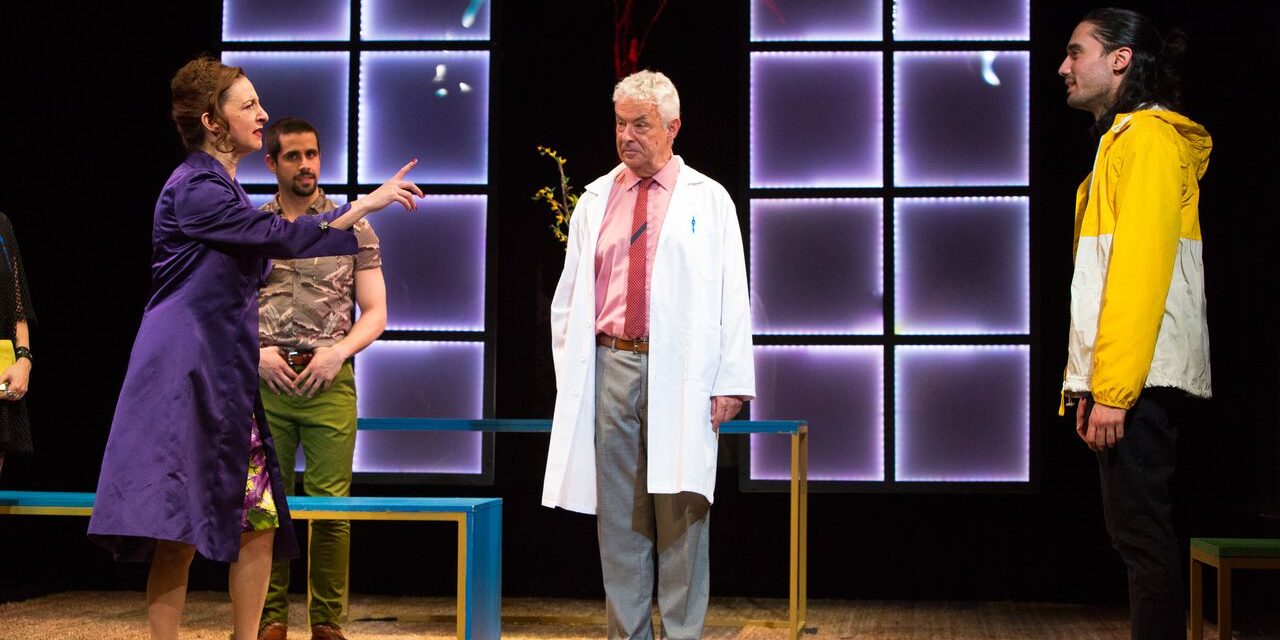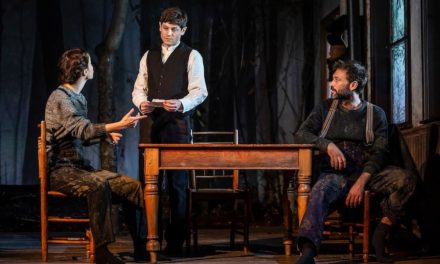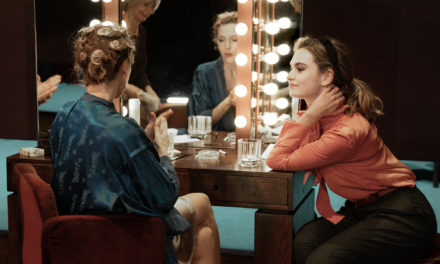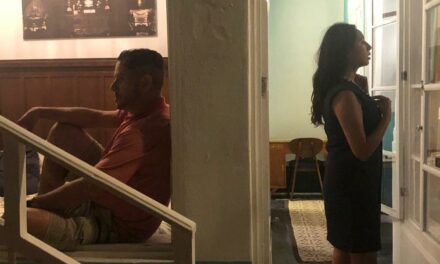Repertorio Español, New York’s preeminent venue for Spanish language theatre, continues its 50th anniversary season celebration with a world premiere by Cuban-American Nilo Cruz. Cruz came to national attention when his play Anna In The Tropics was awarded the Pulitzer Prize in 2003, making him the first Latino so honored.
It is thus with a prideful flourish that Repertorio Español presents Cruz’s latest work, Exquisita Agonía. His new play is the lyrical tale of a middle-aged woman whose recently-deceased husband’s heart has been given new life in the body of a young man. The bereaved Millie, played by the majestic Luz Nicolás, beseeches the doctor who performed the transplant operation to play matchmaker and help her locate the owner of her husband’s heart.
Before the production even begins, one is struck by the utter charm of the lovely venue, a sort of Broadway theater in miniature. The staff is likewise warm and inviting, as is the lovingly intricate auditorium.
The production opens up in an evocatively moody, dark room with an illuminated burgundy abstract wall print which astutely connotes upscale salon as much as it does doctor’s office. This portentous opening scene is thick with hushed anticipation and the thrilling sense that we are in the grasp of a master storyteller. The remainder of the first act is suitably dark and broody, adroitly constructing an engrossing conflict that seems to suggest that Millie will fall in love a second time with the same heart, this time in the body of a younger man.
The evening successfully sets up anticipation for what appears to be a tragic, doomed romance; it is, therefore, a surprise when the production abruptly ramps up the wattage in Act Two, trading the exquisite dialogue between Millie and Dr. Castillo, played with paternal benevolence by Germán Jaramillo, for a larger, more jovial discussion amongst various other characters. One is tempted to think of Almodovar’s restrained Talk To Her in the devout focus of the opening dilemma. Alas, it is the more subtle irony of Buñuel’s That Obscure Object Of Desire that greets us in Act Two.
This second act consists of a crowded, brightly lit sala where the characters seem stuck in place. They seldom leave the room for the bulk of this act and one can’t help but wonder where the mystery, the magic of Act One disappeared to. That’s not to say the meticulously nuanced, occasionally humorous interrelationships are not rendered with finesse and insight; it’s merely that the stage seems somewhat overpopulated and overly bright.
Among the highlights of Act Two is the ascendancy of the friendship between Amér, the hombre with the new heart, and his handsome friend, the dynamic comic actor Pedro De León. They inevitably discover they desire the same woman, with Cruz thus setting up yet another delightful conflict. If Exquisita Agonía ultimately lacks the tragic DNA that Act One seems to promise, the evening ultimately offers up sublime pleasures of a different stripe.
Director José Zayas commandingly marshals his actors through the somewhat unpredictable plot with poise and nuance. His actors move gracefully on the at-times crowded stage with a palpable sense of place. Scenic designer Raúl Abrego, lighting designer Manuel Da Silva, and costume designer Fernando Then all deserve praise for their detailed, harmonious work.
Cruz’ play is a wondrous tale of the journey his various characters take in their quest for fulfillment, for family, for love. He conjures up a world, original and ephemeral, where passion and humor effortlessly coexist. Few writers can juggle those two seemingly contradictory notes. While Millie may not find love with Amér, and he, in turn, may not ultimately get the girl, these characters’ respective quests are what keeps us engaged. In reviving the heart of Millie’s husband, Dr. Castillo seems to offer the promise of love anew amongst friends, old and new.
Exquisita Agonía is at Repertorio Español, 138 East 27th Street in New York City.
This post was written by the author in their personal capacity.The opinions expressed in this article are the author’s own and do not reflect the view of The Theatre Times, their staff or collaborators.
This post was written by Jack Wernick.
The views expressed here belong to the author and do not necessarily reflect our views and opinions.


















